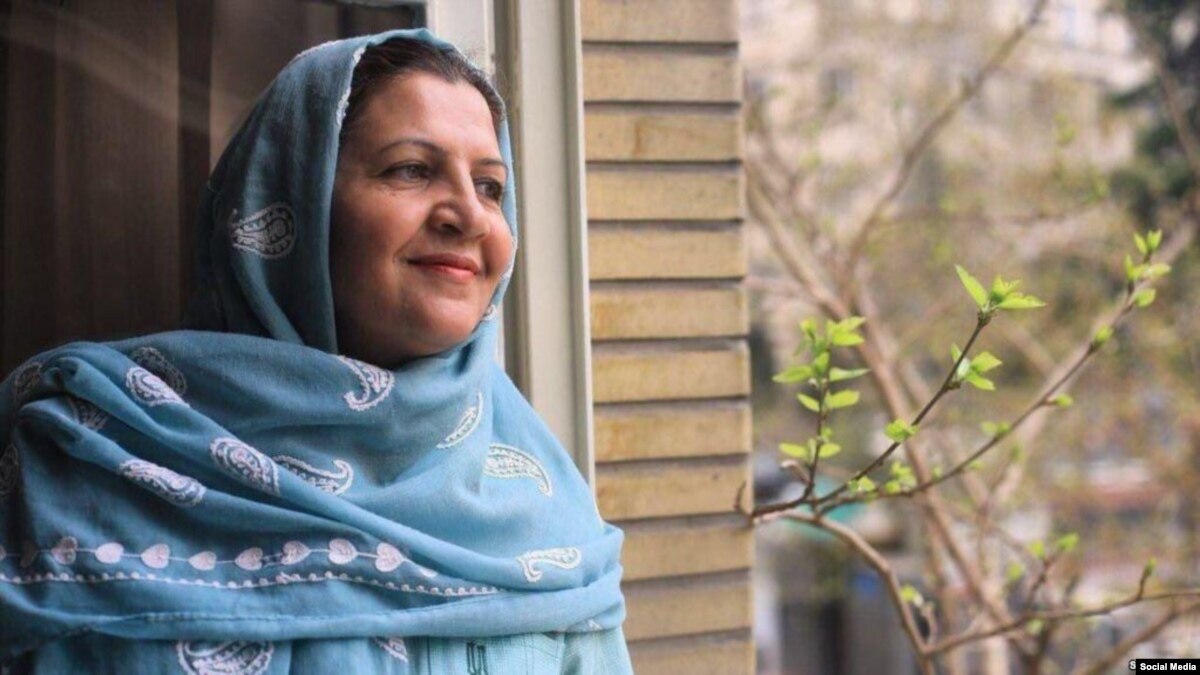
A news outlet covering Iran’s Dervish religious minority says a female Dervish prisoner beaten during her arrest 11 months ago has suffered a further health decline from exposure to secondhand smoke in jail.
In a report published Monday, the news site, Majzooban Noor, quoted cellmates of detainee Shokoufeh Yadollahi as saying she has suffered severe headaches and weakness because of the fumes from opioid and cigarette use by other prisoners in her ward.
Majzooban Noor did not explain how it obtained the information from Yadollahi’s cellmates at Qarchak women’s prison, also known as Shahr-e-Ray prison, east of Tehran. Its report cited Dervish inmates at Qarchak as complaining that other prisoners in their ward, convicted of drug trafficking, robbery and murder, have been smoking opioids and cigarettes in shared spaces such as bathrooms and showers.
A reliable source in Iran’s Dervish community confirmed Majzooban Noor’s account of Yadollahi’s declining health in a message to VOA Persian.
There has been no official comment in Iranian state media on the treatment of Yadollahi or other Dervish women at Qarchak prison.
Amnesty International
London-based rights group Amnesty International has reported that eyewitnesses saw Iranian security forces severely beat Yadollahi at the time of her February 2018 arrest, resulting in head injuries. Iranian security forces detained her and several hundred other Dervishes for involvement in antigovernment protests that turned violent in Tehran.
Amnesty has said Yadollahi and other Dervish women arrested in those protests have been treated badly and arbitrarily detained at Qarchak since.
Human Rights Watch
In an email to VOA Persian on Wednesday, Tara Sepehri Far, an Iran researcher at New York-based group Human Rights Watch, said HRW has learned from its own source that Yadollahi’s lack of adequate access to medical treatment in prison has led to complications in her vision and sense of smell.
“The transfer (into Qarchak) of new prisoners who allegedly smoke cigarettes and drugs does really affect her negatively,” Sepehri Far said.
A 2011 report by New York-based health news site Everyday Health says cigarette smoke inhaled directly or secondhand is one of the 11 biggest triggers of headaches. “Nicotine … changes the size of blood vessels in your brain, and that can cause headache,” the report says.
Sepehri Far also said the use of drugs is not uncommon in Iranian prisons.
“I do not have updated information about Qarchak prison, but we have testimonies from several political prisoners who served their time in other prisons, and they speak about drug trafficking and usage in (those) prisons,” she said.
Iran’s government views Dervishes, also called Sufis, as heretics and subjects them to continued scrutiny and harassment.
This article originated in VOA’s Persian Service. Ramin Haghjoo contributed from Washington.
No comments:
Post a Comment